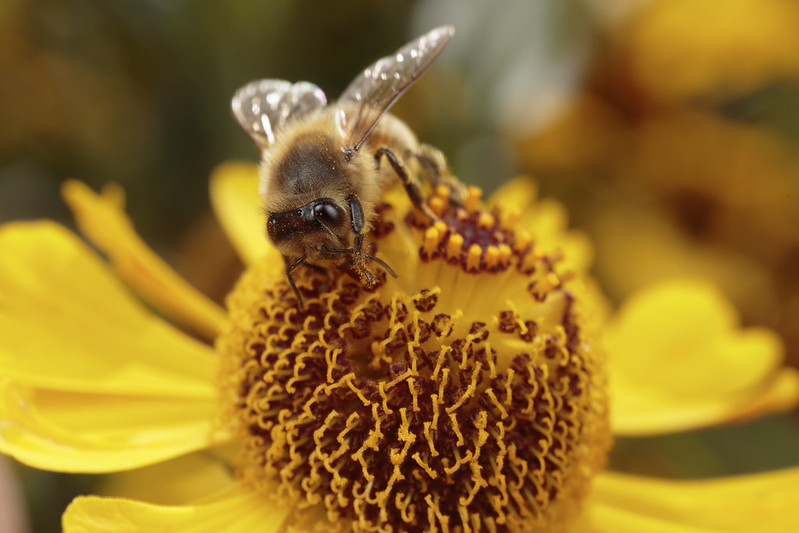Research roundup: Common bee virus makes the insects precocious, but why?
February 25, 2020

Honey bee pollination contributes roughly $15 billion to our agricultural industry each year. But parasites can bring disease to hives, including deformed wing virus (DWV). Bees infected with DWV may forage prematurely, which can cause diminished spatial memory and colony failure. Plus, disoriented infected foragers may be more likely to spread the virus to neighboring colonies. Declan Schroeder, PhD, associate professor in the Department of Veterinary Population Medicine at the University of Minnesota College of Veterinary Medicine, collaborated with researchers from the University of Illinois, and Washington State University to find out why the virus has this effect on bees. They found that the virus, which localizes and replicates in the sensory and behavioral centers of the brain, causes the bee’s brain to function as though the bee is older than it is. Surprisingly, however, the scientists found that the virus is infecting glia, non-neuronal cells in the central and peripheral nervous systems that do not produce electrical impulses—not neurons. These findings could provide new insights into the host-pathogen relationship, but the researchers say more studies are needed to better understand the relationship between the glia-mediated viral response and its impact on bee behavior.
Read more in the February 20, 2020, article in Nature.


